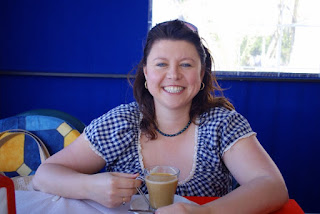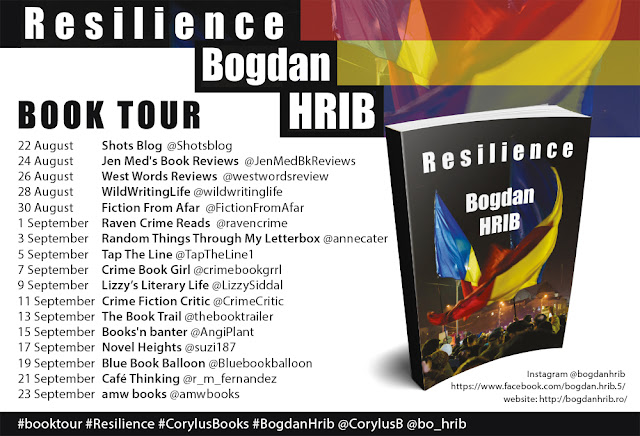Frozen landscapes make for compelling scenery: snow-covered fields and hills; buildings, roads, and vehicles coated with frost; jagged icicles hanging from awnings; the delicate fractal structure of snowflakes; layers of ice that can conceal hidden dangers, and secrets. Given the power inherent in such imagery, one can see why these landscapes have often been chosen as the backdrop to thrillers.
What might we call this sub-genre? The frozen thriller? The chiller-thriller? Regardless of title, it contains a multitude of rich and varied works. Prime examples abound, from commercial blockbusters to indie gems, with settings both rural and urban. They might take place in a foreign and unfamiliar location, or in a character’s home town or area, as in the Coens’ classic Fargo and Daniel Woodrell’s novel Winter’s Bone. At times the setting is enclosed and confined – like the chairlift in Adam Green’s Frozen – whereas in other cases it is wide-open, with characters dangerously exposed to the elements and each other (Taylor Sheridan’s excellent Wind River springs to mind, here). Frozen thrillers can overlap with other genres, including survival-horror (The Edge, The Grey), murder mysteries (Gorky Park, The Killing), historical adventure (The Tenderness of Wolves), mythical epic (Atanarjuat: The Fast Runner) or even science fiction (The Thing).
It’s no coincidence that the majority of the examples above are films, or have been adapted for film: the frozen thriller seems particularly suited to the big screen, since it is so visually stark and striking, filled with images of contrasting whites, blacks, and greys. One could argue that the monochromatic palette codifies the moral tensions and ambiguities inherent in the stories. Many of the works that influenced my own frozen thriller, Your Still Beating Heart, were cinematic. In developing the story, and particularly in cultivating the mood and atmosphere, I returned to works that had inspired me over the years; in so doing certain patterns began to emerge, and recur.
Of primary importance was Brad Andersen’s gripping Transsiberian (2008). It follows a couple, played by Emily Mortimer and Woody Harrelson, on a train from Beijing to Moscow after completing their missionary work. They fall in with two other travellers who turn out to be smugglers – leading to deception, betrayal, and murder. The use of Russian dolls (which contain smuggled heroin) serve as a brilliant symbol for the layers of the film, and thrillers in general. The journey isn’t only outward, but inward: the progressive stages of revelation until the heart of the mystery is reached. The train is also an excellent device. It places limitations on the narrative and the characters’ options, so that while the geographical journey covers hundreds of miles, there is still a sense of entrapment and confinement, as the tension rises and the couple struggle to escape their situation.
The journey in Transsiberian is decidedly one-way. By contrast, Courtney Hunt’s impressive debut feature, Frozen River, makes use of a voyage and return structure. Here, again, smuggling is involved, though in this case the cargo is not drugs, but people. Hunt’s heroine is Ray, a single mother raising two boys and living on a trailer park in upstate New York, near the border with Canada. Struggling to make ends meet, Ray meets Lila, from the nearby Mohawk reservation, who offers the chance to earn some desperately needed money: the two women will use Ray’s car to drive across the border to Canada to smuggle migrants into the United States, using Mohawk territory to provide protection from law enforcement agencies. The film has a docudrama look to it, which heightens the authentic feel: the result makes for tough, poignant viewing in its depiction of ordinary people caught up in illegal and morally murky activity, doing what they can to get by – and facing the consequences.
One distinct aspect of the works mentioned above is that most rely on a relatively small cast. It is as if the stark backdrop of the frozen thriller enables the artist to foreground characters, and focus on the interactions, tensions, and conflict between them – in the same way you might in a stage play. I adopted a similar approach in Your Still Beating Heart. For the first third of the novel, after the shocking murder of her husband, Eira is alone as a foreigner in Prague, and largely cut off from human contact – aside from Marta, her landlady, and Mario, the street hustler who will eventually lure her into taking part in a criminal scheme. The early chapters rely on imagery and setting to convey Eira’s mood and emotional state. The frozen backdrop of Prague – embedded in my own memory from the time I’d spent living there – seemed not just the ideal but the only possible location to set Eira’s story. Once Mario connects Eira with the villains, Pavel and Valerie, and she agrees to their offer, she leaves Prague behind but not that sense of isolation and emotional detachment, which became key to her character’s decisions, and ultimate redemption. Her name, in Welsh, means ‘snow’ and it resonates with Mario’s nickname for her: the snow queen.
Once I had my cast of characters in place, it was a matter of setting them in motion like the figures on Prague’s famed astronomical clock on the Old Town Hall. From there, I began to perceive the progression of the plot, and the conflict between good and evil, like a game of chess, with its black-and-white board and pieces – an apt analogy for the story themes. As author I got to play both sides, as they sought to outsmart and evade one another, while being inextricably drawn into contact, and confrontation, leading towards an endgame.
Perhaps it is this aspect of frozen thrillers, and thrillers in general, that I find most fascinating. Certain elements and motifs such as those outlined above will often recur: stolen money, smuggled cargo, missing or kidnapped victims, borders to be crossed and recrossed, ordinary people caught up in illegal activities. As artist part of the joy and challenge in working within any genre is finding new ways to make use of these tropes: arranging them in a pattern that is both unique and familiar, moving towards an unexpected but inevitable finale that should be both startling and satisfying for the reader.
Your Still Beating Heart by Tyler (published by Myriad Books) £8.99 Out Now
All it takes to change a life is a single moment. A random stabbing on a London bus leaves Eira stripped of a future that should have been hers and propels her into a life skewed out of all recognition. In Prague, the city where she and her husband got engaged, the city where now she flees to in her grief, a chance meeting leads to an intriguing proposition. There's a small job for someone like her: someone without a criminal record or personal connections; someone willing to take a minor risk. All she needs to do is pick something up, and drive back. Just once. Only ever once. Her mission takes her to a place where life is cheap and sordid deals are done. Risking her own life to save another, she must confront unspeakable evil and outrun those who would betray her.




























